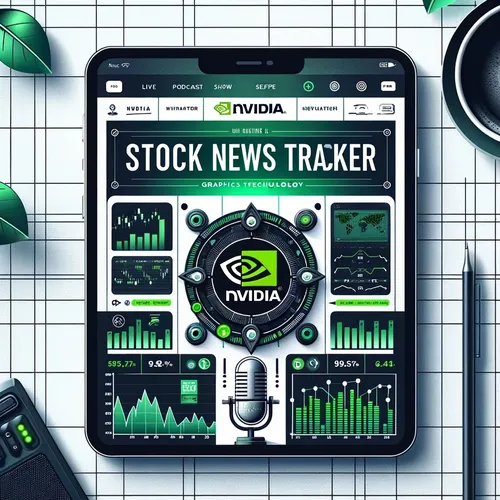Nvidia's Resilience: Seasoned Investor Sees Buying Opportunity Amid Stock Price Dip
- Author
- Quiet. Please
- Published
- Tue 06 Aug 2024
- Episode Link
- https://www.spreaker.com/episode/nvidia-s-resilience-seasoned-investor-sees-buying-opportunity-amid-stock-price-dip--60935307
Nvidia Corporation, a leading player in the technology sector, recently experienced a notable development in its stock dynamics. The company, famous for its cutting-edge graphics processing units (GPUs) and artificial intelligence (AI) technologies, saw a significant event that has caught the attention of investors and market analysts alike.
In June, Nvidia briefly surpassed Microsoft to become the world's most valuable company, underlining the robust demand and investor confidence surrounding its innovative technology products. This achievement came after the company announced plans for a stock split in May, a strategic move aimed at making its shares more accessible to a broader base of investors.
However, Nvidia's stock has recently encountered a downturn, leading to a decline in its share price to $100.45. This drop has presented a unique buying opportunity, as evidenced by a veteran Wall Street trader's decision to purchase Nvidia stock following the crash. This move suggests a belief in the company's long-term growth potential despite the recent dip.
The market's response to Nvidia's stock split plans was initially positive, reflecting optimism about the company's future performance and the potential for increased liquidity and investor participation. Stock splits are often seen as a sign of confidence from a company's management, indicating that they expect continued growth and strong performance in the market.
Nvidia's prominence in the tech industry is not unwarranted. The company is at the forefront of several high-growth sectors, including gaming, data centers, and AI. Its GPUs are considered the gold standard in gaming, providing unparalleled performance and visual experiences. Furthermore, the company has successfully expanded its reach into the data center market, where its GPUs are instrumental in accelerating AI workloads, machine learning, and high-performance computing tasks.
The recent purchase of Nvidia stock by a seasoned Wall Street trader serves as a testament to the company's resilience and the perceived value of its shares despite the recent price decrease. Such moves by experienced investors often signal a belief that the stock is undervalued and poised for a rebound. It also reflects confidence in Nvidia's strategic direction and the enduring demand for its products and solutions.
Nvidia's future prospects remain bright, supported by its continuous innovation and strong market position. The company has consistently delivered robust financial performance, driven by its diversified product portfolio and entry into new markets. As the world increasingly embraces digital transformation, Nvidia's technologies are likely to play a critical role in shaping the future landscape of computing, AI, and beyond.
In conclusion, Nvidia's recent stock price decline to $100.45 per share, following its interim
